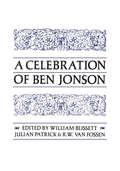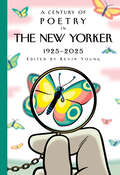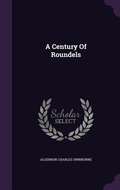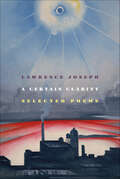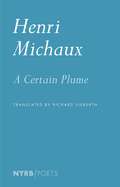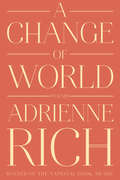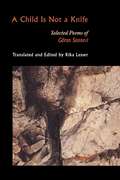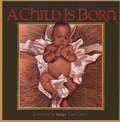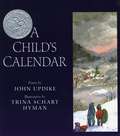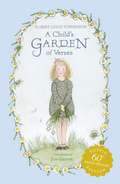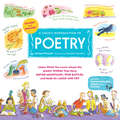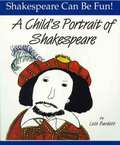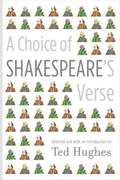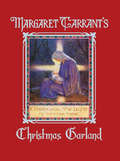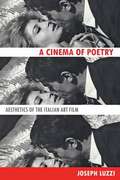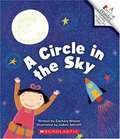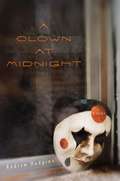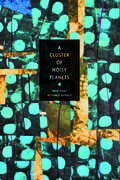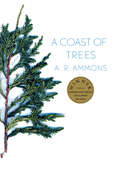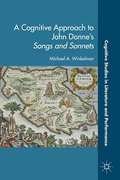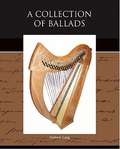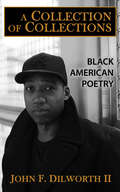- Table View
- List View
A Celebration of Ben Jonson
by William F. Blissett Julian Patrick R.W. Van FossenThe papers in this volume were given by some of the world's foremost Jonsonian scholars at a conference at the University of Toronto which marked the 400th anniversary of his birth. Each contributor came from a different institution, and Canada, the United States, Great Britain, and New Zealand were represented. The balance of papers likewise reflects the range of Ben Jonson's achievement and the combination of brio and control so characteristic of him.The papers arrange themselves in pairs: 'The Incredibility of Jonsonian Comedy,' as discussed by Professor Clifford Leech, is of a piece with distrust and defiance of the audience as discussed in the paper 'Jonson and the Loathèd Stage' by Professor Jonas Barish; Professor George Hibbard in 'Ben Jonson and Human Nature' and Professor D.I. McKenzie in 'The Staple of News and the Late Plays' offer critical assessment of plays, the one wide-ranging, the other closely focused on a previously neglected play; and Professor H.N. Maclean in '"A More Secret Cause": The Wit of Jonson's Poetry' and Professor L.C. Knights in 'Ben Jonson: Public Attitudes and Social Poetry' approach the difficult and rewarding task of defining Jonson's poetry of appraisal in different but complementary styles.
A Century of Poetry in The New Yorker: 1925-2025
by New Yorker Magazine IncEdited by the magazine&’s poetry editor, Kevin Young, a celebratory selection from one hundred years of influential, entertaining, and taste-making verse in The New YorkerSeamus Heaney, Dorothy Parker, Louise Bogan, Louise Glück, Randall Jarrell, Langston Hughes, Derek Walcott, Sylvia Plath, W. S. Merwin, Czesław Miłosz, Tracy K. Smith, Mark Strand, E. E. Cummings, Sharon Olds, Franz Wright, John Ashbery, Sandra Cisneros, Amanda Gorman, Maggie Smith, Kaveh Akbar: these stellar names make up just a fraction of the wonderfulness that is present in this essential anthology.The book is organized into sections honoring times of day (&“Morning Bell,&” &“Lunch Break,&” &“After-Work Drinks,&” &“Night Shift&”), allowing poets from different eras to talk back to one another in the same space, intertwined with chronological groupings from the decades as they march by: the frothy 1920s and 1930s (&“despite the depression,&” Young notes), the more serious &’40s and &’50s (introducing us to the early greats of our contemporary poetry, like Elizabeth Bishop, W. S. Merwin, and Adrienne Rich), the political &’60s and &’70s, the lyrical &’80s and &’90s, and then the 2000s&’ with their explosion of greater diversity in the magazine, greater depth and breadth. Inevitably, we see the high points when poems spoke directly into, about, or against the crises of their times—the war poetry of W. H. Auden and Karl Shapiro; the remarkable outpouring of verse after 9/11 (who can forget Adam Zagajewski&’s &“Try to Praise the Mutilated World&”?); and more recently, stunning poems in response to the cataclysmic events of COVID and the murder of George Floyd.The magazine&’s poetic influence resides not just in this historical and cultural relevance but in sheer human connection, exemplified by the passing verses that became what Young calls &“refrigerator poems&”: the ones you tear out and affix to the fridge to read again and again over months and years. Our love for that singular Billy Collins or Ada Limón poem—or lines by a new writer you&’ve never heard of but will hear much more from in the future—is what has made The New Yorker a great organ for poetry, a mouthpiece for our changing culture and way of life, even a mirror of our collective soul.
A Century of Roundels
by Algernon Charles SwinburneSongs light as these may sound, though deep and strong The heart spake through them, scarce should hope to please Ears tuned to strains of loftier thoughts than throng Songs light as these. <P> <P> Yet grace may set their sometime doubt at ease, Nor need their too rash reverence fear to wrong The shrine it serves at and the hope it sees. For childlike loves and laughters thence prolong Notes that bid enter, fearless as the breeze, Even to the shrine of holiest-hearted song, Songs light as these. (Typographical errors above are due to OCR software and don't occur in the book.)
A Certain Clarity: Selected Poems
by Lawrence JosephA selection of poems from the celebrated poet and lawyerDrawing from his first book, Shouting at No One, from 1983, and continuing through to his most recent, So Where Are We?, from 2017, A Certain Clarity provides a generous selection of Lawrence Joseph’s "poetry of great dignity, grace, and unrelenting persuasiveness” (John Ashbery), each poem “an inspired, made thing by a poet-advocate who has honed a timely song within an urgent testimony that embraces the complex density of truth” (Yusef Komunyakaa). Joseph’s poems constitute one of the most essential and visionary bodies of work in contemporary American poetry. No other American poet covers the territory Joseph does. His ever-new interactions of thoughts, voices, and languages—influenced by his Lebanese and Syrian Catholic heritage, his professional life as a lawyer and legal scholar, and the economies of the world of working-class labor from which he comes—bear witness, on multilayered spatial and temporal planes, to the velocities of global and historical change, and to power structures embodied in endless wars, unleashed capital, racism, and ecological destruction, presenting an ongoing chronicle of what it means to write poetry in the turbulent times in which we live. But also integral to Joseph’s poetry is a sensual intimacy, passionately driven by an acute awareness of a deeper order in which beauty, love, and justice are indistinguishable. Meticulously formed, emotionally fierce, intellectually challenging, Joseph’s poems press back against the high-stakes pressures of our time with a moral and aesthetic intensity not easily forgotten.
A Certain Plume
by Lawrence Durrell Richard Sieburth Henri MichauxA bilingual edition of the most famous of Henri Michaux's poetry collections, now in a new translation from the French.The figure of Plume preoccupied the great Belgian poet Henri Michaux throughout his career. Plume, meaning feather or pen, is a character who drifts from one thing to another, losing shape, taking new forms, at perpetual risk from reality. He is a personification of the imagination as subject to innumerable pratfalls and disgraces, and yet indestructible for all that. In this new bilingual edition, with translations by Richard Sieburth, the entire Plume cycle appears for the first time in English in the form in which Michaux originally published it.
A Certain Sense
by Jibanananda DasSeveral volumes of poems most of which are quite remarkable in their themes and structural sophistication.
A Change of World: Poems
by Adrienne RichThis reissue of Adrienne Rich's first poetry collection reaffirms the author's place as one of our most important American poets. A Change of World was selected by W. H. Auden for the Yale Series of Younger Poets Award. Out of print for decades, this initial collection launched the career of a poet whose work has been crucial to discussions of gender, race, and class, pushing formal boundaries and consistently examining both self and society.
A Child Is Not a Knife: Selected Poems of Göran Sonnevi (The Lockert Library of Poetry in Translation #41)
by Göran SonneviGöran Sonnevi is one of Sweden's most celebrated, respected, and prolific poets. For this first book-length selection of Sonnevi to appear in English, Rika Lesser has chosen works written between 1971 and 1989--although most of the poems come from the last decade and from Sonnevi's last three books, which form part of the single oändlig [unending/infinite/interminable] poem that he continues to write from book to book. Of Lesser's introduction to the work, Richard Howard writes, "Lesser's wonderful prose texts at the outset provide not only an ingress into complex and baffling matter but one of the most determined statements of the translator's text since Walter Benjamin."From "Åby, Öland; 1982"We are here in the ultimate lives of our bodiesnegations of the ultimate negationWe are complete parts of the worldWe rise up out of infinitylike the limestone flats from the sea Like the starsWe are denials of infinityOne day we shall reach all the way there
A Child is Born
by Margaret Wise BrownWith her usual gentleness and warmth, Margaret Wise Brown tells little ones about the night Jesus was born: "O come, country shepherds O follow the light And welcome the baby This blessed night..." Other books by this author are available in this library.
A Child's Anthology of Poetry
by Elizabeth Hauge SwordThe book challenges the notion that a child's ability to enjoy and appreciate poetry is limited. It celebrates poetry while respecting its intended audience.
A Child's Calendar
by John UpdikeA collection of twelve poems describing the activities in a child's life and the changes in the weather as the year moves from January to December.<P><P> Winner of the Caldecott Honor
A Child's Garden of Verses
by Robert Louis StevensonRediscover the delight and innocence of childhood in these classic poems from celebrated author, Robert Louis Stevenson. From make-believe to climbing trees, bedtime stories to morning play and favourite cousins to beloved mothers.Here is a very special collection to be treasured for ever.
A Child's Introduction to Poetry: Listen While You Learn About the Magic Words That Have Moved Mountains, Won Battles, and Made Us Laugh and Cry (Child's Introduction Series)
by Michael DriscollThis delightful, interactive journey through the history of the world's poetry now includes a removable poster and access to downloadable audio, allowing kids to listen and learn as they experience the magic of the spoken word. Poetry can be fun -- especially when we can read it, hear it, and discover its many delights. A Child's Introduction to Poetry joyously introduces kids (and parents) to the greatest poets in history -- from Homer and Shakespeare to Langston Hughes and Maya Angelou -- and provides excellent examples of their work and commentary on what makes it so special and everlasting. The book covers every style of poem, from epics and odes, to nonsense verse and haikus, and is filled with examples of each one. This multimedia package encourages children to listen, read, and learn, and opens the door to a lifetime of appreciation of a rich literary tradition. Also included is a removable, fold-out poster of "Jabberwocky" by Lewis Carroll, one of history's most iconic poems.
A Child's Portrait of Shakespeare
by Lois Burdett"Who is William Shakespeare?" For more than 20 years, Lois Burdett has asked that question of her elementary school students in Stratford, Ontario, Canada, leading them on a voyage of discovery that brings the Bard to life for boys and girls ages seven and up. A Child's Portrait of Shakespeare, written in rhyming couplets is suitable for staging as class plays as well as reading aloud.
A Choice of Shakespeare's Verse
by William Shakespeare Ted HughesShakespeare's best as chosen by the Ted Hughes. According to most anthologies, Shakespeare wrote only sonnets and songs for his plays. The reason for this is the reluctance of anthologists to break into the sacred precincts of his drama and start looting portable chunks ... Yet when the great speeches of his plays are taken out of context they are no more difficult to understand and appropriate than those by other great poets. This clear, compact, inviting selection of Shakespeare's verse opens the door to new readers of our greatest writer and deepens lifelong readers' understanding of his work. Ted Hughes spent his life considering Shakespeare's works and drawing on them for his own poetry; his book-length account of Shakespeare's development, Shakespeare and the Goddess of Complete Being, was one of the most distinctive works of literary criticism of recent years. For this selection, Hughes deliberately took strong, relatively self-contained passages of Shakespeare's verse out of the plays and arranged them in a pattern, like beads on a string, including the best-known songs and sonnets. The result is at once a revealing sequence of Shakespeare's verse and an anthology of his greatest bits.
A Christmas Garland
by Margaret Tarrant Marian Russell HeathThis enchanting Christmas gift book features stories and poems by St. Luke, William Blake, Alfred Lord Tennyson, William Wordsworth, Hans Christian Andersen, Christina Rossetti, and other literary luminaries. Charming color illustrations complement the brief tales and verses of this holiday treasury — an ideal read-aloud resource for children and families.
A Christmas Stocking Story
by Hilary KnightIn this poem, eight animals, who are friends, find that there has been a mix-up in their Christmas stockings and presents from Santa. The friends trade presents and stockings until everyone is delighted with the right gifts.
A Cinema of Poetry: Aesthetics of the Italian Art Film
by Joseph LuzziLuzzi's study is the first to show how Italian filmmakers address such crucial aesthetic issues as the nature of the chorus, the relation between symbol and allegory, the literary prehistory of montage, and the place of poetry in cinematic expression-what Pasolini called the cinema of poetry.
A Circle in the Sky
by Zachary WilsonA child puts together various simple shapes to build a rocket that will fly to the moon.
A Clown at Midnight: Poems
by Andrew Hudgins“Recklessness and rigor, in equal measure, mark the stirring poetics of Andrew Hudgins in this fine new book. Hudgins can wrestle a rhyme scheme into submission with one hand tied behind his back and can penetrate the black heart of history with a single, subtly rendered detail. He laughs with Democritus and weeps with Heraclitus and, line by distillate line, contrives a tonic antidote to “the acetone / of American inattention.” — Linda GregersonIn A Clown at Midnight Andrew Hudgins offers a meditation on humor with a refreshing poignancy and cutting wit. He touches on love and nature, but at its core this collection is about the consolations and terrors, the delights and discomforts, of laughter, taking its title from a quote by Lon Chaney Sr.: “The essence of true horror is a clown at midnight.” Skillfully probing paradoxes, Hudgins conjures the titular clown: “Down these mean streets a bad joke walks alone / bruised head held low, chin tucked in tight, eyes down / defiant. He laughs and it turns to a moan.” Hudgins gives us utter honesty and accessible verse, exploring moments both uncomfortable and satirical while probing the impulse to confront life’s most demanding trials with laughter.“Hudgins’s poems are often funny, hinging on a joke or wisecrack or malapropism, but human nature red in tooth and claw has always been his greatest theme.” — BookPage
A Cluster of Noisy Planets
by Charles RaffertyCharles Rafferty’s latest collection of prose poems turns philosophical. In A Cluster of Noisy Planets, Rafferty captures the rhythms and patterns of life as a lover, father, and poet, distilling each moment to its essence and grounding them collectively in the wider perspective of a changing world, the constant turning of the stars and the changing seasons of the New England countryside. With a knowing nod to the passage of time—day to day, year to year, epoch to epoch—these lyrical poems form a record of the profound, ephemeral joys, losses, and echoes of commonplace moments.
A Coast of Trees
by A. R. AmmonsThis collection of shorter poems won the National Book Critics Circle Award in 1981. Of this volume, the noted critic Harold Bloom has written, "A Coast of Trees represents A. R. Ammons at his strongest and most eloquent in the lyric mode. The book is an achievement fully comparable to his Uplands and Briefings. Among the poems likely to assume a permanent place in the Ammonsian (and American) canon are the majestic title lyric and 'Swells,' 'Easter Morning,' 'Keepsake,' 'Givings,' and 'Persistences.' Again Ammons has confirmed his vital continuities with the central Whitmanian tradition of our poetry, and his crucial place in that panoply."
A Cognitive Approach To John Donne’s Songs And Sonnets
by Michael A. WinkelmanInvestigations into how the brain actually works have led to remarkable discoveries and these findings carry profound implications for interpreting literature. This study applies recent breakthroughs from neuroscience and evolutionary psychology in order to deepen our understanding of John Donne's Songs and Sonnets.
A Collection of Ballads
by Andrew LangAndrew Lang is known for being a poet, novelist, literary critic, and student of anthropology. He is most famous for his folk stories and fairy tales. "Poetry begins, as Aristotle says, in improvisation. <P> <P> Every man is his own poet, and, in moments of strong motion, expresses himself in song. " Lang goes on to say that poetry was once looked at only in a local sense but now poetry from all over the world is compared and studied. Ballard may evolve into fairy tales and from there into a more advanced literary work. The ballads in this collection were chosen for their romantic charm and for the Border raids they record. A few of the ballads in this work include. Sir Patrick Spens -- Battle Of Otterbourne -- Tam Lin -- Thomas The Rhymer -- "Sir Hugh; Or The Jew's Daughter" -- Son Davie! Son Davie! -- The Wife Of Usher's Well -- The Twa Corbies -- The Bonnie Earl Moray -- Clerk Saunders - and Waly, Waly.
A Collection of Collections: Black American Poetry
by John F Dilworth IIA Collection of Collections is a volume of poetry by John F. Dilworth II that explores the author's experiences maneuvering through life as a young Black man in America in this tumultuous 21st century.Through his poems, John motivates people to be passionate about their purpose and open to sharing their perspective. He captures the beauty and purpose of people hurting and striving. Some of the words may trigger a variety of emotions, but that is where the healing can be found.
